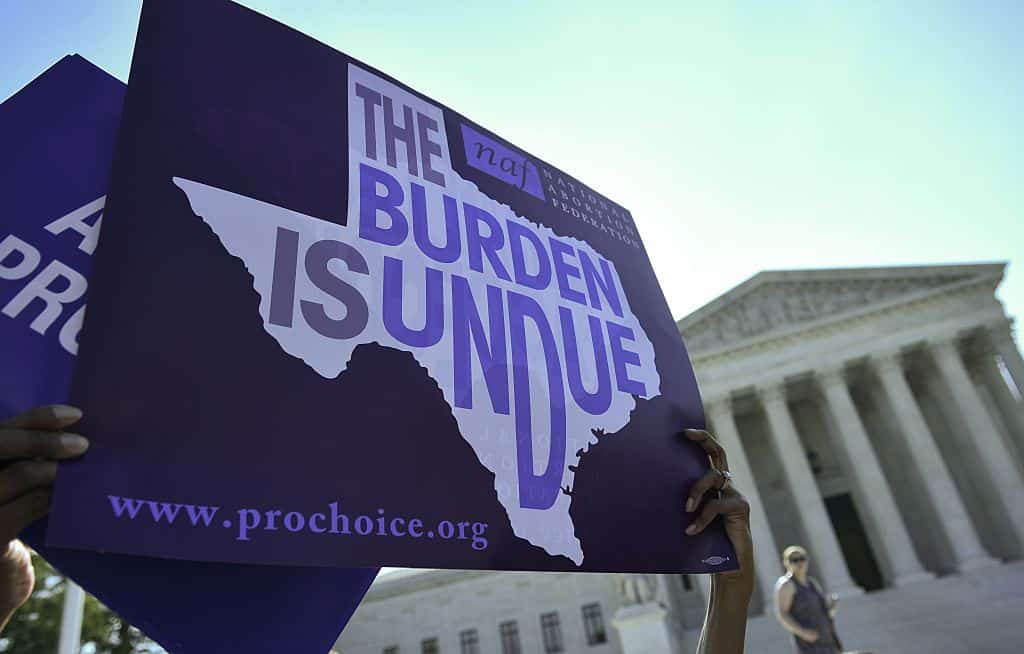Though access to abortion is a perennial target for ultra-conservative Republicans in the state legislature, new data indicates that a majority of Texans are not supportive of the restrictive anti-choice laws that have come to define the state.
Earlier this week, a poll from Hart Research Associates was released showing that a majority of Texans support lifting the ban on Medicaid coverage of abortion. Now that the Texas Legislature has convened, a number of Texas abortion funds are rallying behind Rosie’s Law, which would expand health insurance coverage of abortion for Texans enrolled in Medicaid and private insurance plans.
Rosie’s Law is named after Rosie Jiménez. In 1977, the 27-year-old from McAllen died from complications from an unsafe abortion. She was not able to afford the procedure in a medical clinic, which was legal in the state, because Medicaid did not cover abortions.
The Hyde Amendment, which was passed in 1976, bans federal Medicaid coverage for almost all abortions. However, the Hyde Amendment does not dictate whether a state can use their own funds to cover abortion. Currently, fifteen states provide their own funding for abortion coverage for those on Medicaid.
In an interview with Texas Signal, two executive directors of abortion fund groups reacted to the poll, and the push for Rosie’s Law.
“More than half of the people who are subjected to the Hyde Amendment on the federal level across the country are women of color, and we see that a lot in Texas as well,” said Amanda Beatriz Williams, executive director of the Lilith Fund for Reproductive Equality. Williams also noted that this year, with all the inequities in the health care system especially for people of color exposed with the COVID-19 pandemic, abortion bans on coverage were cruel.
Kamyon Conner, executive director of the Texas Equal Access Fund (TEA Fund), believes that this poll comes at a pivotal time. “During this time so many people, especially folks of color and folks who rely on Medicaid had very little access to the healthcare they needed during this pandemic,” said Conner.
Another finding from the poll is that 84 percent of all Texas voters, including 75 percent of Republicans, believe that anti-abortion politicians should not be able to deny coverage for abortion care for people who are struggling financially.
In March, Governor Greg Abbott issued an executive order halting medical procedures that were not “medically necessary,” which included abortions. Williams and Connor were in contact through their respective organizations with a number of Texans who were impacted by the abortion ban (which was lifted in April).
They both cited conversations with people around the state who were confused, and frightened. A recent study from the Journal of the American Medical Association does indicate a stark increase in Texans traveling out of state for the procedure during the temporary ban.
The legislature convened this week and Republicans have already introduced anti-abortion laws, including a fetal heartbeat law. Yesterday, state Rep. Bryan Slaton introduced a bill that would stop any consideration of legislation naming highways or streets until the legislature has voted to abolish abortion. Slaton’s bill was voted down overwhelmingly.
Despite Republican efforts to curb abortion access, Williams and Conners are optimistic about recruiting more legislators to support Rosie’s Law since the data shows that over half of Texans are in favor of lifting the ban on Medicaid coverage for abortion.
Last session, Rosie’s Law was introduced by Rep. Sheryl Cole (as HB 895), but it did not get out of the Human Services Committee. This session Rep. Cole will sponsor Rosie’s Law again, along with state Sen. Sarah Eckhardt.
Texas abortion fund groups like Lilith Fund, TEA Fund, Frontera Fund, and All Above All are planning an aggressive strategy to convince lawmakers to sign on to the legislation. With many Texans struggling from the impact of the COVID-19 pandemic, it’s shown a light on inequality and health care. “This is the time when legislators should be trying to expand access to all forms of health care, including abortion access,” said Williams.
Photo: MANDEL NGAN/AFP via Getty Images
A longtime writer and journalist, Jessica was thrilled to join the Texas Signal where she could utilize her unique perspective on politics and culture. As the Features and Opinion Editor, she is responsible for coordinating editorials and segments from diverse authors. She is also the host of the podcast the Tex Mix, as well as the co-host for the weekly SignalCast. Jessica attended Harvard College, is a onetime fitness blogger, and has now transitioned to recreational runner (for which her joints are thankful).





